Purple Heart’s Dramatic Hues Create Warmth and Elegance
Floors made from Purple Heart lumber may look as if they’ve been stained to be a rich mixture of purple and brown, but this tree produces its striking color on its own. Considered an exotic wood species, Purple Heart hardwood flooring is pricier than domestic hardwoods, but it’s extremely resilient and maintains its lustrous brilliance, with proper care.
The Purple Heart tree can grow to a height of 170 feet and has a mostly-straight trunk that’s 1.5 to 3 feet wide. The sheer size of this tree allows for greater flexibility in hardwood plank milling – boards may be available in a variety of custom sizes and widths.
Here are some things you should know about Purple Heart wood flooring:
Name: Purple Heart is a member of the Peltogyne genus, which contains about 20 species known for their richly colored wood. In the United States, when people talk about Purple Heart wood flooring, they are usually referring to the species Peltogyne spp. Other names for Purple Heart include Amaranth, Violetwood and Morado.
Origins: Trees in the Peltogyne genus grow throughout Mexico and Central and South America. Peltogyne spp. is primarily grown in Brazil, Guyana and Suriname.
Hardness Rating: With a Janka Hardness rating of 1860 out of 4000, the Purple Heart wood species falls within the upper-medium range for hardwood flooring options. The Janka Hardness scale is used to determine a hardwood’s resistance to dents, dings and scratches. The test, which uses a 2” x 2” x 6” piece of a wood specimen and a steel ball, determines how many pounds per square inch of force will make the steel ball embed halfway into the wood. That result leads to the wood’s Janka Hardness rating. Woods at the low end of the scale will show more evidence of dings compared to those at the top. However, woods at the very top of the Janka Hardness Scale could be too difficult to cut for home applications. Also note that other species of Peltogyne may have higher or lower Janka Hardness ratings.
Installation: Purple Heart hardwood is resistant to termites and is durable enough to be used for outdoor wood decks and other structures exposed to the elements, but its resiliency also can wear-down saws and other woodworking tools. Drilling pilot holes for nails is a must. With age, Purple Heart’s vivid purple tones may gradually darken to brown or black. A finish that protects wood from UV rays can help preserve the color for a longer amount of time.



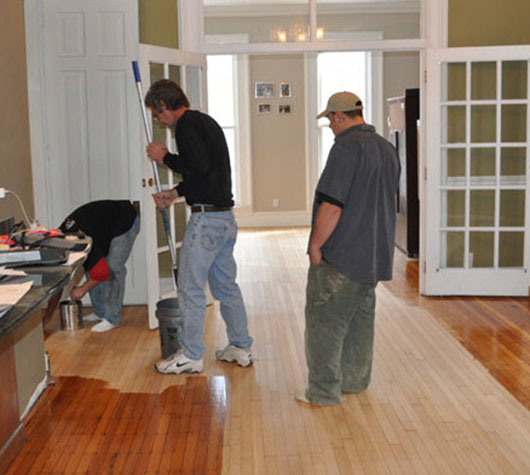 Repairing Scratched Hardwood Floors
Repairing Scratched Hardwood Floors
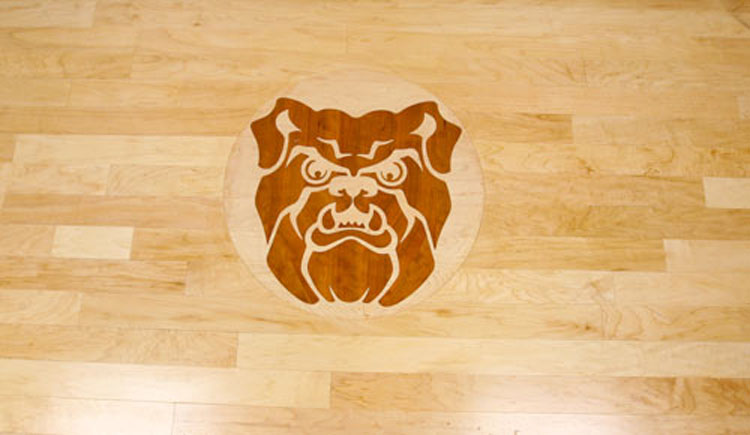 Hinkle Fieldhouse Butler Univers...
Hinkle Fieldhouse Butler Univers...
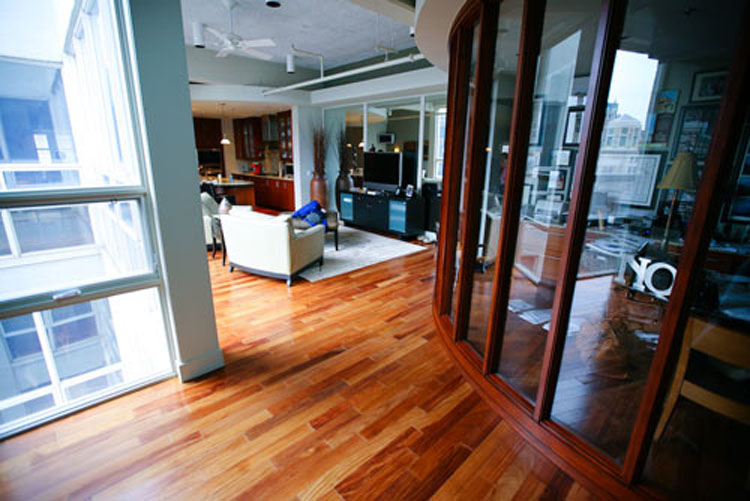 Penthouse Town Home Downtown Ind...
Penthouse Town Home Downtown Ind...
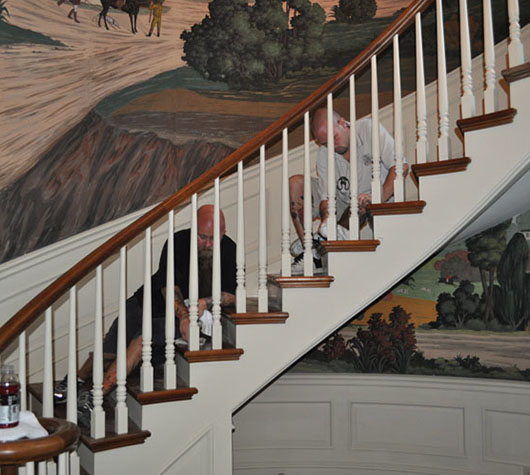 Antique Flooring Restoration
Antique Flooring Restoration
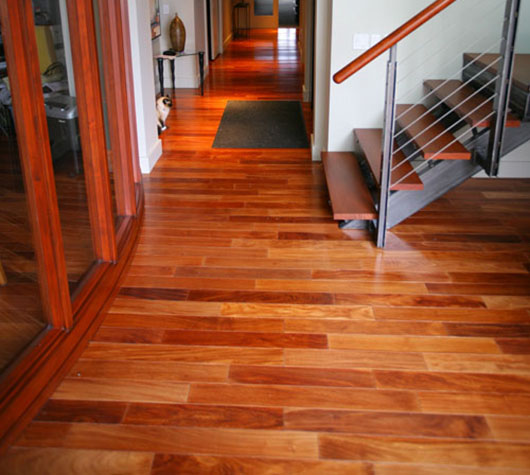 Brazilian Cherry Hardwood Floors
Brazilian Cherry Hardwood Floors







